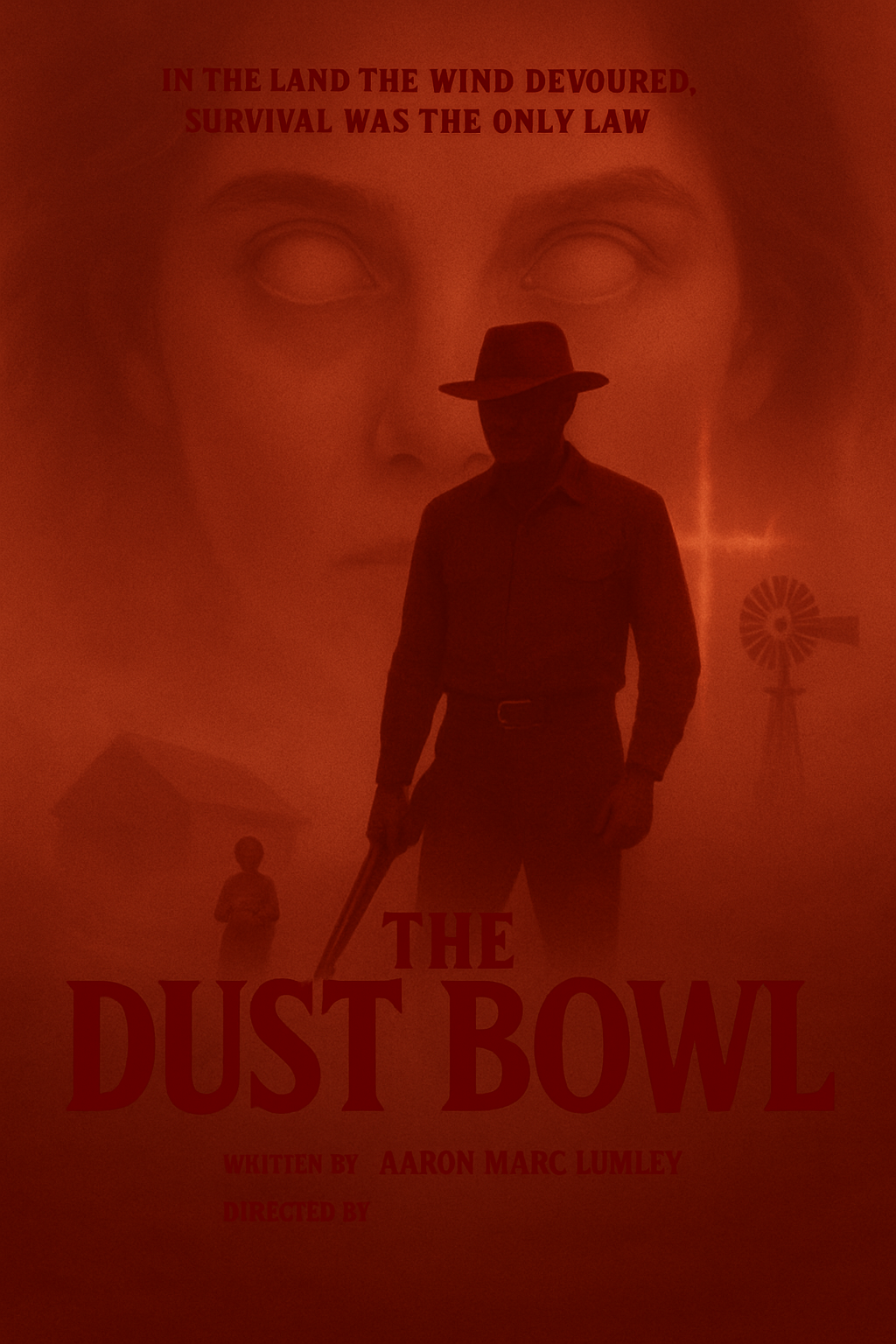THE STAGE 32 LOGLINES
Post your loglines. Get and give feedback.

THE DUST BOWL
By Aaron Lumley
During the worst dust storms of the 1930s, a timid county deputy in Oklahoma must choose between loyalty to his powerful father and the moral courage to stop a rising Klan demagogue — aided by a Nordic nun whose hallucinogenic ritual of henbane reveals the land's mythic and bloody heart.
SYNOPSIS:
Oklahoma, 1935. The land is cracked, the skies blackened by dust, and the people of Texhoma cling to survival in a world that seems cursed. Sheriff Junior Smith, boyish and uncertain, wears the badge his father forced upon him but lacks the strength to wield it. His father, Big Frank, the swaggering mayor and self-styled savior of the town, thrives on control and corruption, cutting deals while lining his pockets as the community starves.
Into this fractured town walks Sister Frida, a hypnotic missionary with roots in Norse folklore. She tends to orphans, comforts the dying, and carries with her unsettling visions of storms, Valkyries, and death. Her presence unsettles Junior, but also stirs something inside him—a flicker of defiance against his father’s shadow and the rising tide of hate.
That tide takes form in Billy Dawson, a snake-like bar owner and ambitious Klan leader, who rallies desperate farmers and angry townsfolk with promises of protection and power. As the Klan grows bolder, families like the Thurgoods and Garrisons are torn apart by poverty, betrayal, and the seductive lure of belonging. When dust storms sweep across the plains, choking livestock and burying homes, violence erupts, faith is tested, and allegiances shift in terrifying ways.
Caught between Big Frank’s iron grip, Billy’s poisonous rhetoric, and Frida’s haunting visions, Junior must decide who he truly is: his father’s weak heir, Billy’s pawn, or the man the town desperately needs. But in a place where even the earth itself seems determined to kill them, any choice may come too late.
The Dust Bowl is a gripping historical drama infused with eerie myth and gothic dread, exploring how desperation can breed both monsters and martyrs, and how in the face of ruin, people will turn to anything—God, myth, or hate—to survive.
Winner of the Rome Prisma Award for Best Feature Screenplay

Rated this logline
Rated this logline
Rated this logline